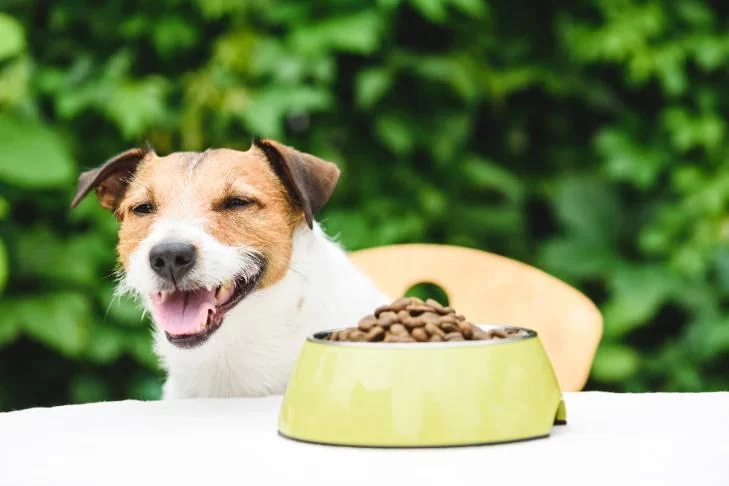How to Keep Your Pet’s Digestive System Healthy
As a devoted pet owner, I've always prioritized my pets' overall health, and one area I found crucial yet often overlooked is digestive health. Our pets, whether dogs, cats, or even exotic animals, depend on their digestive system to break down food properly and absorb the nutrients they need to stay healthy. In this article, I’ll share some best practices for ensuring your pet’s digestive system stays in top condition and how to handle issues when they arise.
1. Understanding Your Pet’s Digestive System
The digestive system of your pet is more complex than many people realize. It’s not just about food passing through their system; it’s about how their bodies break down that food, absorb nutrients, and dispose of waste. The digestive process begins in the mouth and continues through the esophagus, stomach, small intestine, and large intestine. Each part plays a crucial role in your pet’s ability to process nutrients and maintain their health.
For example, I’ve learned through my experience with my dog Max that a healthy gut can directly impact their energy, coat quality, and overall mood. Max’s digestive system is sensitive, so I’ve paid extra attention to the food he eats, making sure to avoid any ingredients that could upset his stomach.
2. Feeding Your Pet a Balanced Diet
Just like us, the foundation of a healthy digestive system is a well-balanced diet. A proper diet not only provides essential nutrients but also promotes good gut health. When selecting food for your pet, it’s vital to focus on their specific needs, whether they’re a puppy, senior dog, or an adult cat. Different stages of life and activity levels call for different nutritional requirements.
For instance, I learned the hard way when I switched Max’s diet to something I thought was healthy but was not suited for his sensitive stomach. After a few days of feeding him that new food, he started showing signs of discomfort—vomiting, diarrhea, and a lack of appetite. I quickly realized that the new food wasn’t ideal for his digestive health, so I made sure to transition him back to a food more suited for his needs. Since then, I’ve been more mindful of the ingredients in his food, choosing options that are specifically designed for his sensitive stomach.
2.1 Choosing the Right Food for Your Pet
It’s essential to choose food that meets your pet’s dietary needs. For dogs, consider protein sources like chicken, beef, or fish, along with easily digestible carbohydrates like sweet potatoes or rice. For cats, protein is critical, so look for foods with a higher meat content. Also, consider whether your pet has any specific health concerns, such as food allergies or sensitivities.
If you’re unsure about which food is right for your pet, I recommend consulting with a veterinarian. They can help guide you towards the best food options based on your pet’s specific health needs. Some veterinarians even offer personalized meal plans for pets with specific digestive or health issues.
3. Keep Your Pet Hydrated
Proper hydration is just as essential for digestive health as the food they eat. Dehydration can cause constipation and slow down the digestive process, leading to discomfort and even more severe problems. I’ve found that ensuring my pets always have access to fresh water is a simple but effective way to promote healthy digestion.
My cat, Luna, has a tendency to avoid drinking water from her bowl, which is common for many cats. To encourage her to drink more, I’ve introduced a pet water fountain, which she seems to enjoy more than a regular bowl. Hydration can also come from wet food, so if your pet has trouble drinking enough water, consider adding some wet food to their diet.
4. Regular Exercise to Promote Healthy Digestion
Exercise is another critical factor that contributes to your pet’s digestive health. Regular physical activity helps stimulate the digestive tract, encouraging regular bowel movements and reducing the risk of constipation. For dogs, this means daily walks or playtime, and for cats, even interactive toys or climbing structures can help keep them moving.
Max loves his daily walks, and I’ve noticed that when he’s more active, he’s less likely to experience digestive problems like bloating or gas. Exercise helps regulate his bowel movements, making it easier for him to maintain a healthy gut.
5. Watch for Signs of Digestive Problems
As a pet owner, it's crucial to be aware of signs that your pet may be experiencing digestive issues. Early detection is key to preventing more serious health problems down the line. Some common symptoms that could indicate digestive problems in pets include:
- Vomiting or Diarrhea: If these symptoms persist for more than a day, it’s time to visit the vet.
- Changes in Appetite: A sudden loss of appetite or excessive hunger could indicate digestive distress.
- Excessive Gas: If your pet is passing gas more frequently or the gas smells particularly foul, it could be a sign of digestive upset.
- Constipation: Difficulty passing stool or infrequent bowel movements can signal digestive problems.
- Weight Loss or Lethargy: These could be symptoms of a more severe issue, such as malabsorption or an underlying illness.
If your pet exhibits any of these signs, don’t hesitate to take them to a veterinarian. I’ve always found that acting quickly can make a significant difference in managing digestive problems and preventing them from escalating into something more severe.
6. Probiotics for Digestive Health
Probiotics, the “good” bacteria that help balance the gut, are another helpful tool for maintaining digestive health in pets. I’ve started incorporating probiotic supplements into Max’s diet, especially after he experienced digestive upset from a change in food. The probiotics helped to restore the natural balance in his gut, improving his digestion and overall comfort.
Many pet food brands now offer foods with added probiotics, or you can give your pet a probiotic supplement recommended by your veterinarian. Just be sure to use one that’s specifically formulated for pets to avoid any potential issues.
7. Avoid Feeding Human Food
We’ve all been guilty of slipping our pets a treat from the table, but it’s important to understand that not all human food is safe for pets. Foods like chocolate, grapes, onions, and garlic can be toxic to dogs and cats, and even small amounts can lead to digestive distress or worse. In my experience, keeping human food away from my pets has significantly reduced the likelihood of digestive issues.
Instead, offer pet-safe treats that are specifically designed for their dietary needs. Max and Luna both enjoy special treats made for their digestive health, and I’ve noticed that these are much gentler on their systems.
8. Visit Your Veterinarian Regularly
Routine veterinary visits are essential for ensuring your pet’s digestive system remains in good health. Regular check-ups allow your vet to catch any early signs of digestive issues before they become significant problems. I make it a point to schedule an annual visit for both Max and Luna, where their overall health, including their digestive health, is thoroughly checked.
During these visits, my vet also provides advice on maintaining a healthy diet, how to monitor digestive health at home, and when to seek professional help for digestive issues. By staying proactive, I can ensure that my pets live long, healthy lives with minimal digestive problems.
For more specific advice on maintaining your pet’s digestive health, I highly recommend reaching out to a trusted veterinary clinic like Hidden Brook Veterinary. They offer comprehensive care and expert guidance tailored to your pet’s unique needs.












